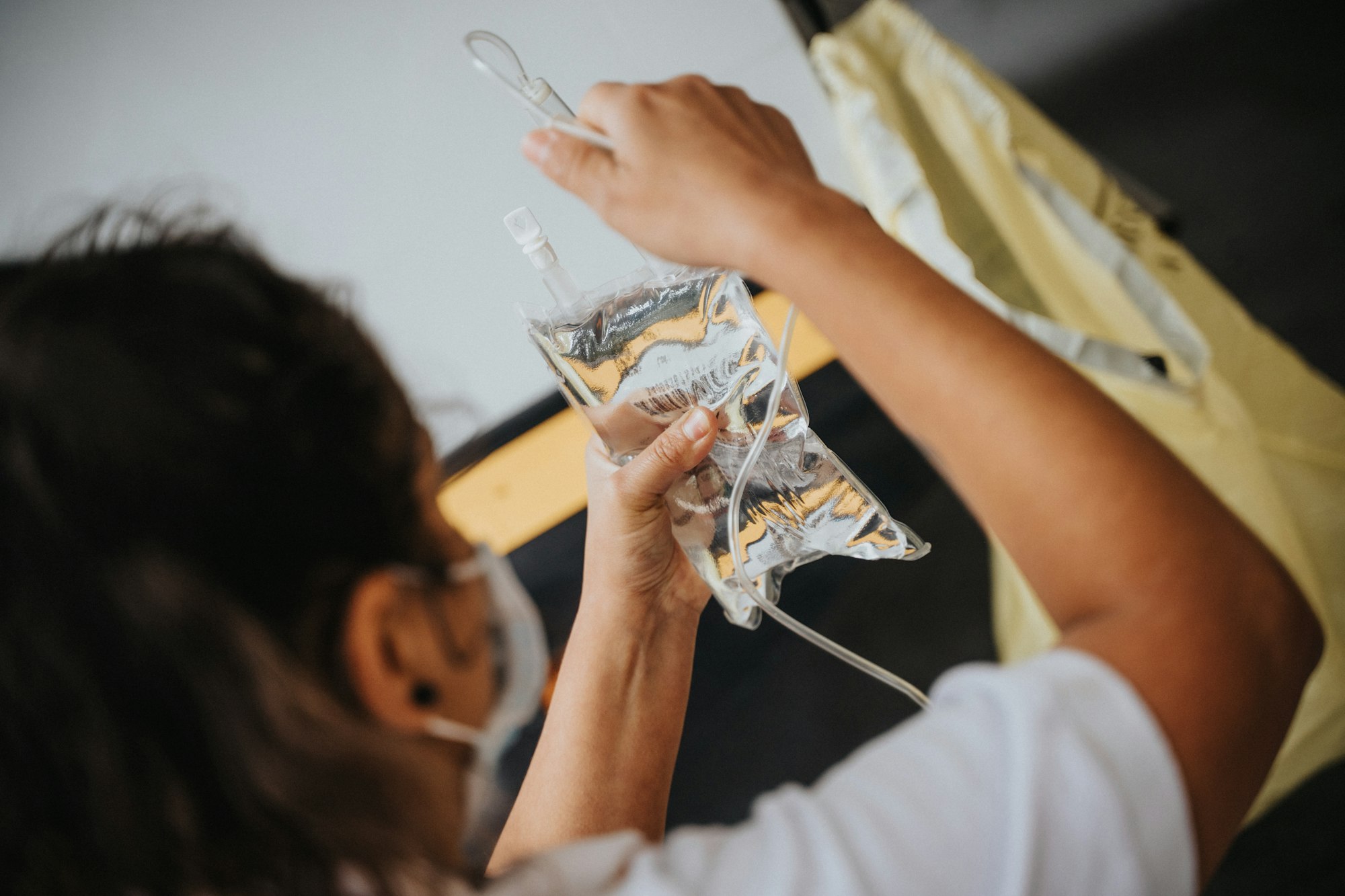
The Good, the Bad, the Monoclonal Antibodies
Misinformation! Anti-vaxxers! Expensive! Loud Noises!
Why are there all these frustrated-sounding, local articles revolving around monoclonal antibodies? You know, the effective therapeutic treatment for Covid-19. This is about saving lives, right?
In a recent article by USA Today Dr. William Schaffner, an infectious disease specialist at the Vanderbilt University School of Medicine, stated, “Vanderbilt has treated more than 1,400 people with monoclonal antibodies since late last year and cut its hospitalization rate by more than half.”
"We're really quite convinced that they are keeping people with risk factors for serious disease out of the hospital," he said.
Do I sense positivity? Optimism? At least our medical community still has it’s eye on the ball, here.
So, what exactly are monoclonal antibodies?
For one, monoclonal antibody therapy is meant to help prevent further complications and hospitalization after you contract Covid-19. How do they help you, exactly? As per therapeutic use, you receive an infusion after you’ve been diagnosed with Covid-19, adding more antibodies to your system to fight against the virus alongside your body’s own antibodies. Monoclonal antibodies are mass-produced in a lab and have been around since 1975. It has been shown that if this therapeutic is administered soon after the onset of Covid-19 symptoms, it "significantly reduced Covid-19-related hospitalization or all-cause death, rapidly resolved symptoms, and reduced viral load."
What do they do?
Monoclonal antibodies recognize the spike protein on the outer shell of the virus that is in your body and interfere with its ability to enter your cells. Because a virus uses your body’s cells to replicate itself, interference of this process lends you an extra layer of defense against serious infection
The monoclonal antibody infusions are different from the vaccine as they are administered after you contract the virus as a therapeutic. Conversely, vaccinations are administered before you contract the virus as a preventative measure.
Can you just pop into a clinic and get an infusion of monoclonal antibodies?
The short answer, of course, is no. You can find specific locations that provide the therapeutic treatment in Tennessee, but ultimately a doctor must sign off on the infusion. Even before the Biden Administration started capping shipments of monoclonal antibodies to states, there were specific criteria a person who contracted Covid-19 had to meet in order to be considered for this therapeutic.
Some good news:
Despite the recent redistribution of monoclonal antibody therapeutics across the United States by the Biden Administration, Tennessee has adequate supply according to the Tennessee Health Department Commissioner Dr. Lisa Piercey. In an interview with Fox 17 News' Amanda Chin, Dr. Piercey made it clear that no one has been denied the therapy due to the new equitable redistribution stating, "The demand went down at the same time the supply process changed."
There are also other breakthroughs regarding this type of therapeutic treatment on the horizon. Recently, Tennessee’s very own Vanderbilt University Medical Center came out with the discovery of an ultra-potent monoclonal antibody treatment that may even help with the new delta variant of the Covid-19 virus. Given that there are breakthrough cases among vaccinated people, this therapeutic advancement might prove to be lifesaving in the future as new variants of Covid-19 mutate their way onto the scene.
Some food for thought:
Monoclonal antibodies have a shelf life of twelve months when stored properly. To put this into perspective, the Pfizer vaccine only has a shelf life of one month. Comparing these two treatments is like comparing apples to oranges, but the shelf life is something to take into account when assessing the return of investment regarding monoclonal antibodies.
The more you know:🌈
So, there it is. The quick and dirty rundown on monoclonal antibody therapeutics. They might have slightly fallen off the radar for now (besides some incoherent mumbling from the chattering class who continue to fervently repeat the mantra: the unvaccinated are selfish) but don't you worry, this topic will certainly be something we hear about again as the therapeutics themselves are not only effective, but new discoveries in this area are quite promising regarding variants of Covid-19.
That being said, it's become abundantly clear that helping ill people return to health isn't the only objective these days. Using equity as an excuse to manufacture scarcity in states that anticipated the need for this therapeutic is just another page in the Covid-19 pandemic political playbook and of course, we're taking notes.
